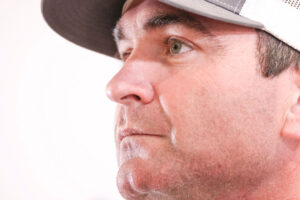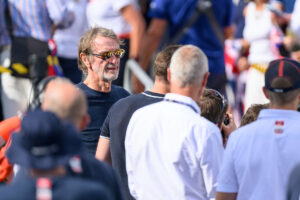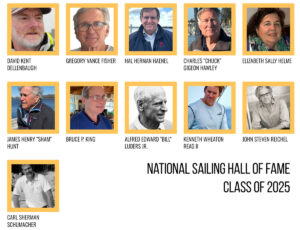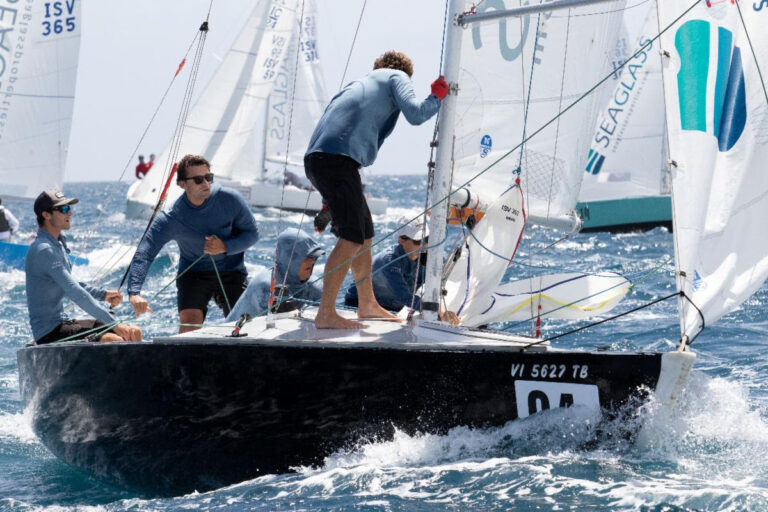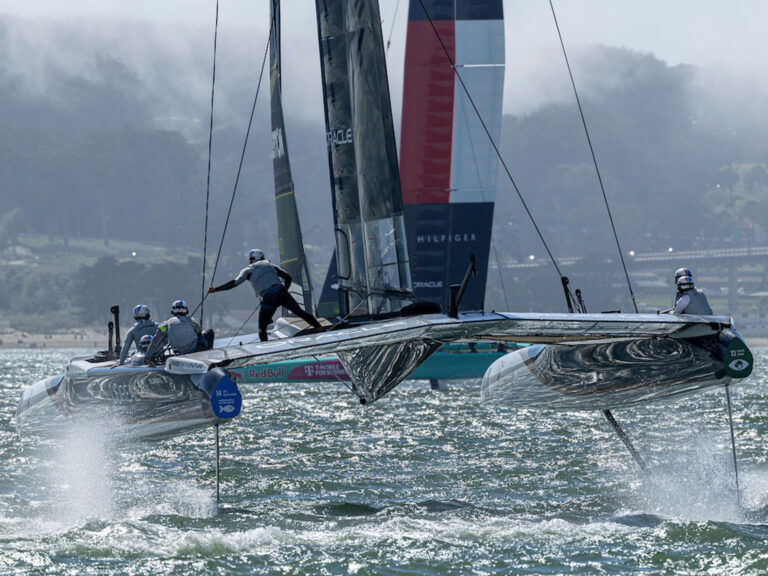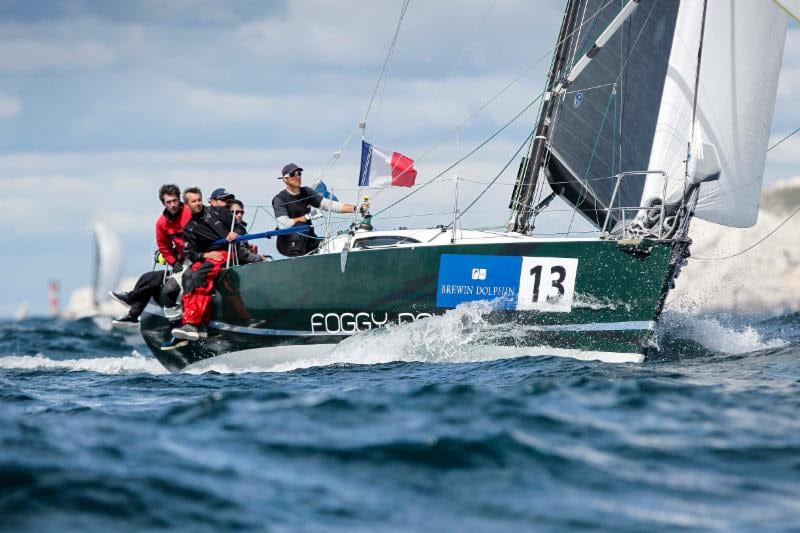
In the last two editions of the RORC’s biennial flagship event from Cowes to Plymouth via southwest Ireland’s most famous rock, French boats have not just won, they have dominated.
In the last race in 2015, Géry Trentesaux’s JPK 10.80 Courrier Du Leon won by more than two and a half hours, and, despite racing in IRC Three, beat all of the IRC Two boats on the water. That year seven of the top ten boats overall were French.
It was similar in 2013 when the Rolex Fastnet Race had its first ever doublehanded winner in father and son team, Pascal and Alexis Loisin on their JPK 10.10 Night and Day, beating all the boats, even those sailed fully crewed. That year, 12 of the top 14 boats were French.
This year little has changed. Trentesaux is back, but is instead sailing in the Multihull class on the TS42 catamaran Guyader Gastronomie. This year’s race will be special, marking the 40th anniversary of his first Fastnet race.
The Loisins are returning on Night and Day. They still have their competitive edge, winning IRC Four and finishing third overall in the recent Channel Race. Pascal admits this was the only training they have done together this year. But they have sailed a lot individually: “Alexis did the Figaro and I did a three week holiday on my boat at the beginning of July!” Alexis is one of France’s leading Figaro sailors. Although he hasn’t won the short-handed one design class’ effective championship, he has finished in the top 10 in the last seven editions.
Night and Day remains much the same as 2013, although they have been experimenting with off the wind sail configurations. Their latest set-up comprises a short bowsprit from which they fly their masthead Code 0, a longer pole for their symmetric spinnaker and an A5 – one less sail than 2013. Thanks to this, their boat being four years older and having gained 20kg, Night and Day has shed six points of rating.
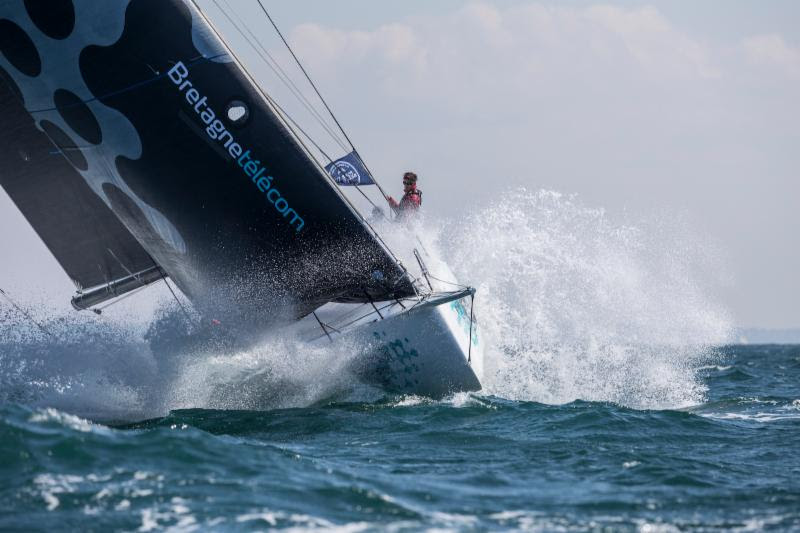
Battling hard with them will be sistership, Noel Racine’s fully crewed Foggy Dew. His JPK 10.10 finished seven minutes astern of Night and Day on corrected in the Channel Race, and was second to her again overall in the 2013 Rolex Fastnet Race. This year Racine is sailing with around half of the crew he sailed with in 2015 when he finished ninth overall. Ever modest, Racine feels that Night and Day is favourite again this year.
As to why JPK yachts have won the last two races and filled four of the top five places in 2015, Racine believes that it is due to the wide range of set-ups and ratings they have. “You can have an old and heavy boat and if we have light air at the beginning and wind at the end, they can be ahead of us.”
At the other end of the size/speed range, second fastest French boat in the IRC fleet is Bretagne Telecom, a canting keel Mach 45 skippered by Nicolas Groleau, who runs JPS Productions, builder of the Mach 45 and the highly successful Mach 40 of which six are competing in the Class40. This will be Bretagne Telecom’s fifth consecutive Rolex Fastnet Race and in the last two she won the Canting Keel class. However due to lack of numbers, this class has now been incorporated into IRC Zero. Groleau hopes they will see some reaching conditions, where Bretagne Telecom can excel.
As to why French boats do so well, Groleau believes it is due to the production boats the French manufacture: “In medium conditions, production boats with a low rating and a good crew are best. The JPKs are very efficient in these conditions. The English boats are more real racers.” In this respect, his own boat is more racer-cruiser. “We don’t have cabins. There is no wood inside.”
All three skippers agree on one thing. The main reason for France’s dominance is having two top offshore racing ‘schools’: The Figaro class and the Tour de France à la Voile of old (before it became an inshore event for multihulls).
As Loison observes: “I noticed in 2013 that among the ten first boats, on eight you had one, or several people who had done the Figaro. I only had one – my son!”
Noel Racine agrees: “The Figaro is a very good school for shorthanded offshore racing and very good for offshore racing generally. The Tour de France à la Voile was too – I have several crew who have done that race.”
The Rolex Fastnet Race sets sail from Cowes on Sunday, 6th August with the first start at 1100 BST.

